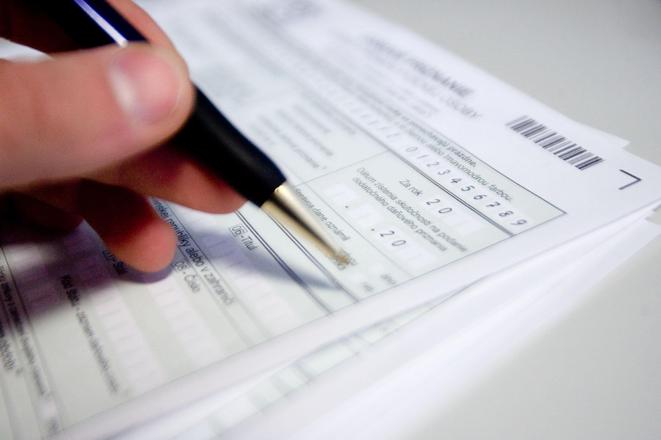Renáta Bláhová is partner at BMB Partners TAXAND and member of the Advisory council of the German Chamber of Commerce in Slovakia.
Former shareholders of Slovenský plynárenský priemysel (Slovak Gas Industry, hereafter “SPP”) established a Dutch shell company in the past to avoid paying tax on dividends. This led to a lawsuit with the tax authorities, which finally concluded a month ago, with SPP losing the case at the Slovak Constitutional Court. The decision is likely to impact other cases of tax law abuse, including those involving shell companies in countries with favourable double tax treaties.
Shell companies and tax law abuse have a direct impact on public finances, the transparency of financial flows, and the competitiveness of the business sector. This is why I have been writing about this topic in both popular and professional contexts for more than 10 years. The tax authorities have been rather reserved for many years, partly due to this significant, long-running dispute with SPP, which was only resolved last month.
History of the case
I summarised the case concerning the Dutch holding company of the Slovak SPP back in 2013, after the Regional Court's judgement in the case was first published, in Professor Lang's joint publication Tax Treaty Case Law Around the Globe.
The case dates back 21 years, to when a German-French shareholder held a 49-percent stake and management control in SPP. During the 2003 corporate income tax audit, the Financial Administration found that the foreign shareholders of SPP had set up a holding company, Slovak Gas Holding B.V. (hereafter “SGH”), shortly before SPP was due to pay dividends to them without taxation. However, following the audit, the tax authorities additionally imposed a withholding tax of EUR 15.43 million on SPP.
If the dividends had been distributed directly to the original SPP shareholders in France and Germany, they would have been subject to withholding tax at rates of 15 percent and 10 percent, respectively. The new shareholding structure was intended to ensure that investors could avoid withholding taxes under a double tax treaty with the Netherlands, which guaranteed the transfer of dividends tax-free. Thus, the dividends were not subject to taxation in Slovakia and were also exempt from tax under national rules in the Netherlands.
The tax administration argued that the holding company SGH had only a formal seat in the Netherlands, from which it was not possible to actually manage SPP. It considered SGH to be a "shell company," assessed the case as an abuse of law, and refused to grant the shareholders the protection of the double tax treaty.
SPP sued the tax authorities, initiating a lengthy dispute that ping-ponged between the Regional and Supreme Courts. This continued until the 2021 reform of the administrative justice system, which led to the creation of the Supreme Administrative Court of the Slovak Republic. After years of litigation in Slovakia and at the European Court of Justice, the Supreme Administrative Court upheld the correctness of the Financial Administration's steps in August 2023, primarily based on the doctrine of abuse of law in the field of international taxation. SPP then lodged a complaint with the Constitutional Court.
Decision of the Constitutional Court
Despite the surge of constitutional complaints, the Constitutional Court issued its decision last month and confirmed that the Supreme Administrative Court had addressed the tax administration's objections in a standard and constitutionally acceptable manner, providing clear and adequate reasoning for its conclusions.
The Constitutional Court emphasised the key legal principle that, for the purposes of the double tax treaty (with the Netherlands), the terms 'resident of the other State' and 'place of management' must be interpreted as referring to the place from which managerial functions are actually exercised, with all their real economic consequences. Restricting the meaning of these terms to the formal seat alone is logically inconsistent with the purpose of the double tax treaty, which, as its title makes clear, aims 'not only to avoid double taxation but also to prevent tax evasion'.
The Constitutional Court explained in general terms that the concept of tax law abuse serves to nullify the legal effects of an action that appears to comply with positive law but, in its consequences, undermines its meaning and purpose. According to the court, the law was abused in this case through a complete denial of its purpose, as the objective of a double tax treaty is not only to prevent double taxation in the given circumstances but also to ensure that tax is paid.
If the transfer of a company's seat to a third country lacks economic or other pragmatic significance beyond avoiding tax liability, it may constitute an abuse of international double tax treaties, according to the Constitutional Court.
While the assessment of tax law abuse in individual cases will depend on their specific circumstances, the SPP case clearly stands as a landmark decision, given its significance and history. How the tax administration will adapt its approach to tax audits remains an open question.

 Tax returns, illustartive stock photo (source: SME)
Tax returns, illustartive stock photo (source: SME)